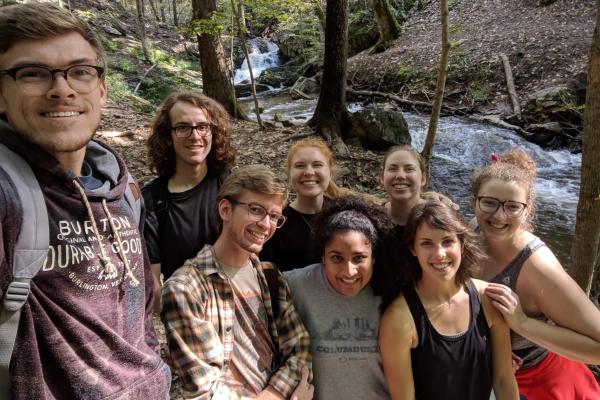The first interactions I had with the people I now call family were email introductions we sent to each other last spring. There was excitement in all of them, and refinement. We all wanted to impress each other, and it worked. I was a bit intimidated by people’s descriptions of themselves. These were people who listened to podcasts and watched documentaries, who read academic books for fun and researched interesting topics for honors theses. They were smart and accomplished, funny and well-spoken. In short, they had it together. Or so it appeared.
Of course, while our descriptions of ourselves were real, we didn’t mention the ways we struggle or the things we don’t know. In reality, none of us had it together. And shortly after landing in Washington, D.C., together, it became apparent that we all had similar reasons for being here: We need to figure out how to get to where we’re going. Our hearts are all being pulled toward justice, toward the reign of God, and toward community, but those can look like a lot of things. How specifically will it look for each of us? That’s what we’re here to figure out — or at least to gain a bit of clarity on.
In our home, we have entered a space where we can be our unrefined, imperfect selves. We don’t need to impress each other. We can simply be, and grow as beings. This involves conversations about hard topics and sharing our deepest hurts and struggles with each other, but luckily, it also involves a lot of laughter. I don’t want to brag (OK, maybe I do,) but we are a hilarious bunch. A quote board hangs on our wall, and we regularly add funny one liners (funny to us at least). Different things strike different people as funny, but laughter is truly contagious. Usually it just takes one of us to get the whole table laughing.
There is joy in the journey, but it’s also arduous and wearying. We come from different families and communities, and we’ve been set on this journey in different ways.. We’ve carried different expectations with us, assuming we knew which parts of the experience (the work, the community, the growth) would be the most meaningful and what things we’d have to learn. We have all been surprised by the ways these facets have shifted away from our expectations. We’re introverts and extroverts, Methodists and Pentecostals, from the East Coast and the West Coast and the Midwest.
And we’ve all landed here, together. We’ve become a part of each other’s journeys, and we’ve become family. Living in D.C., and working for justice can be draining: There’s an urgency in the air that can be suffocating and makes it hard to slow down and rest. But to be able to come home each night and enjoy a meal around the table, to laugh and cry together, to know that these seven other people have your back no matter what — it lets me take a breath. We take care of each other. We’re not only learning what it means to live in community — we’re actually living it.
The reign of God is something that is now and not yet, here and then. The community we’ve entered into by God’s grace is a tangible way of living the here of that reign. It’s also a radical act of hope: We’ve taken a good, hard look at the world, with all of its brokenness and ugliness, and committed to taking caring of each other and those around us. We’ve committed to breaking through with beauty.
Are you interested in journeying with a community striving for peace and justice? Learn more about how to join the next cycle of Sojourners fellows
Got something to say about what you're reading? We value your feedback!

